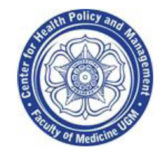The HFG Project is pleased to work with a host of outstanding country partners. The following descriptions are drawn from our partners’ websites.
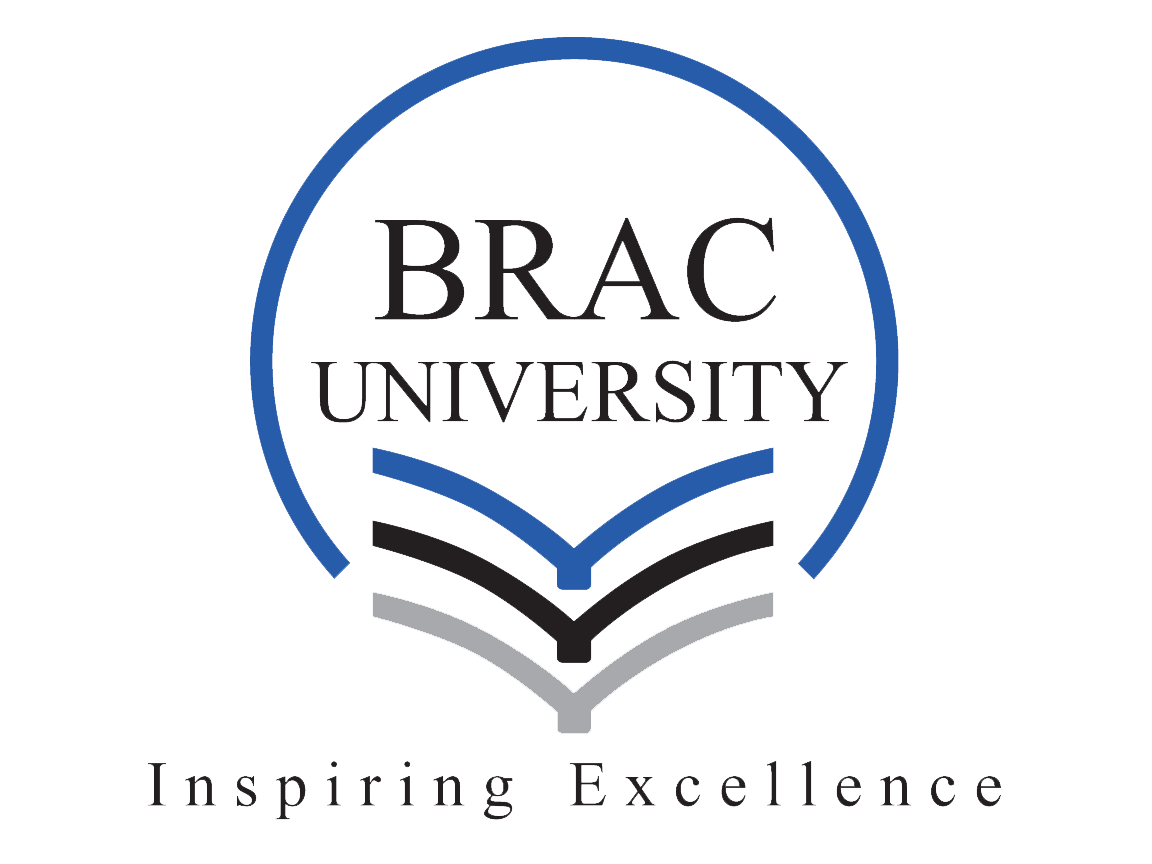 Bangladesh
Bangladesh
Established in 2001, BRAC University (BRACU) follows a liberal arts approach to education. BRACU hopes to instill in its students a commitment to working towards national development and progress. BRACU is accredited by the University Grants Commission and approved by the Ministry of Education, Government of Bangladesh. The mission of BRAC University is to foster the national development process through the creation of a center of excellence in higher education that is responsive to society’s needs, and able to develop creative leaders and actively contributes to learning and creation of knowledge.
Benin
 Institute Regionale du Santé Publique Comlan Alfred QUENUM de Ouidah (IRSP-CAQ)—the Comlan Alfred Quenum Regional Institute of Public Health—was created in 1977 by the WHO Regional Office for Africa in Cotonou. IRSP-CAQ is a regional and international training, research, and service delivery institution, in the area of public health. IRSP-CAQ works to improve the performance of health systems for health sector development in African countries. The organization helps to strengthen the professional skills of health sector managers and supports ministries of health in working towards better health for their populations.
Institute Regionale du Santé Publique Comlan Alfred QUENUM de Ouidah (IRSP-CAQ)—the Comlan Alfred Quenum Regional Institute of Public Health—was created in 1977 by the WHO Regional Office for Africa in Cotonou. IRSP-CAQ is a regional and international training, research, and service delivery institution, in the area of public health. IRSP-CAQ works to improve the performance of health systems for health sector development in African countries. The organization helps to strengthen the professional skills of health sector managers and supports ministries of health in working towards better health for their populations.
 Canada
Canada
The Canadian Association of Schools of Nursing (CASN) is the national voice for nursing education, research, and scholarship and represents baccalaureate and graduate nursing programs in Canada. The Association’s objective is to lead nursing education and nursing scholarship in the interest of healthier Canadians. CASN speaks for Canadian nursing education and scholarship, establishes and promotes national standards of excellence for nursing education, promotes the advancement of nursing knowledge, facilitates the integration of theory, research and practice, contributes to public policy, and provides a national forum for issues in nursing education and research.
 Caribbean
Caribbean
The Health Economics Unit, Center for Health Economics (HEU) at the University of the West Indies, St. Augustine, was established in 1995 as one of the research clusters in the Department of Economics. The HEU staff is responsible for research, training and project-related activities in health economics and related areas, including social insurance, poverty, health and sustainable development, equity, health policy and management. HEU is seen as one means by which the UWI can make a contribution to the quality of life of the people of the Caribbean. Through the HEU, UWI will strengthen the efforts of the governments and other agencies of the region in bringing better health care within the reach of all citizens.
Chile
Bitrán & Asociados (B&A) is an international research and consulting group based in Santiago, Chile, specializing in health financing  and economics, health reform, and training. With over 16 years of experience, the company serves clients throughout the developing world, having successfully competed projects for governments in Latin America and the Caribbean, as well as in Africa and Asia. As the World Bank Institute’s partner institute for Latin America and the Caribbean, B&A has designed and delivered trainings and courses on health reform. B&A also works in the private sector, advising pharmaceutical firms, health insurers, health care providers, and investors.
and economics, health reform, and training. With over 16 years of experience, the company serves clients throughout the developing world, having successfully competed projects for governments in Latin America and the Caribbean, as well as in Africa and Asia. As the World Bank Institute’s partner institute for Latin America and the Caribbean, B&A has designed and delivered trainings and courses on health reform. B&A also works in the private sector, advising pharmaceutical firms, health insurers, health care providers, and investors.
![]() DRC
DRC
The Kinshasa School of Public Health‘s (KSPH) mission is to contribute to the improvement of the health and well-being of Congolese people by carrying out research to identify and resolve public health problems, engaging in community activities designed to promote community participation and strengthen capacity to build partnerships, self-sufficiency and self-determination. The school offers: masters programs in public health and health economics as well as short courses in public health specialties and continued education for health professionals; quality research to assess the burden of disease and its impact on populations, to identify solutions to health problems, to evaluate health services and ways to strengthen the capacity of health agents, and to evaluate the impact of health programs; and support to disease control and surveillance, epidemiological investigations, disaster management, and quality control of public health laboratories.
Ethiopia
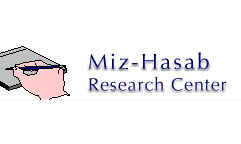 Miz-Hasab Research Center (MHRC) was established in 1996 as a licensed private research center based in Addis Ababa, Ethiopia. The Center’s objective is to conduct research on population and development overall with a focus on reproductive health, and to publish and disseminate the results to as many stakeholders as possible. The specific objectives are to: undertake quantitative surveys and qualitative studies to analyze critical issues relating to population; evaluate program funding, particularly on family planning, HIV/AIDS and other reproductive health activities; advise and assist individuals and/or institutions in the country that are engaged in social science research; develop and disseminate short-term training manuals based on the results of the research activities conducted at the Center; establish linkages and working relationships with similar other national and international institutions as well as local and international organizations.
Miz-Hasab Research Center (MHRC) was established in 1996 as a licensed private research center based in Addis Ababa, Ethiopia. The Center’s objective is to conduct research on population and development overall with a focus on reproductive health, and to publish and disseminate the results to as many stakeholders as possible. The specific objectives are to: undertake quantitative surveys and qualitative studies to analyze critical issues relating to population; evaluate program funding, particularly on family planning, HIV/AIDS and other reproductive health activities; advise and assist individuals and/or institutions in the country that are engaged in social science research; develop and disseminate short-term training manuals based on the results of the research activities conducted at the Center; establish linkages and working relationships with similar other national and international institutions as well as local and international organizations.
Ghana
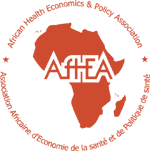 The African Health Economics and Policy Association (AfHEA) is a bilingual (English and French) non-political and non profit-making association inaugurated in 2009 with headquarters in Accra, Ghana. The overall mission of AfHEA is to contribute to the promotion and strengthening of the use of health economics and health policy analysis in achieving equitable and efficient health systems and improved health outcomes in Africa, especially for the most vulnerable populations. Its membership includes over 200 health economics, financing and policy experts from African countries residing within and outside the continent. AfHEA also aims to strengthen the capacities of African health economists, policy analysts and other experts working in the health sector and promoting the use of economic and policy tools in the areas of health, as well as evidence in the decision- making process in health sectors in Africa.
The African Health Economics and Policy Association (AfHEA) is a bilingual (English and French) non-political and non profit-making association inaugurated in 2009 with headquarters in Accra, Ghana. The overall mission of AfHEA is to contribute to the promotion and strengthening of the use of health economics and health policy analysis in achieving equitable and efficient health systems and improved health outcomes in Africa, especially for the most vulnerable populations. Its membership includes over 200 health economics, financing and policy experts from African countries residing within and outside the continent. AfHEA also aims to strengthen the capacities of African health economists, policy analysts and other experts working in the health sector and promoting the use of economic and policy tools in the areas of health, as well as evidence in the decision- making process in health sectors in Africa.
 The Ghana Center for Democratic Development (CDD-Ghana) is an independent, non-governmental, non-profit research and advocacy institute dedicated to the promotion of democracy, good governance, and economic openness in Ghana and throughout Africa. CDD-Ghana’s research outputs and other services are available to and used by governmental and non-governmental agencies, Africa regional bodies, development partners as well as researchers and the general public. Their mission is to promote democracy, good governance, and economic openness in Ghana and Africa.
The Ghana Center for Democratic Development (CDD-Ghana) is an independent, non-governmental, non-profit research and advocacy institute dedicated to the promotion of democracy, good governance, and economic openness in Ghana and throughout Africa. CDD-Ghana’s research outputs and other services are available to and used by governmental and non-governmental agencies, Africa regional bodies, development partners as well as researchers and the general public. Their mission is to promote democracy, good governance, and economic openness in Ghana and Africa.
India
 The Public Health Foundation of India (PHFI) is a public-private initiative that has collaboratively evolved through consultations with multiple constituencies including Indian and international academia, state and central governments, multi & bi-lateral agencies and civil society groups. PHFI is a response to redress the limited institutional capacity in India for strengthening training, research and policy development in the area of public health. Structured as an independent foundation, PHFI focuses on broad dimensions of public health that encompass promotive, preventive and therapeutic services.
The Public Health Foundation of India (PHFI) is a public-private initiative that has collaboratively evolved through consultations with multiple constituencies including Indian and international academia, state and central governments, multi & bi-lateral agencies and civil society groups. PHFI is a response to redress the limited institutional capacity in India for strengthening training, research and policy development in the area of public health. Structured as an independent foundation, PHFI focuses on broad dimensions of public health that encompass promotive, preventive and therapeutic services.
The Center for Health Policy and Management (CHPM) within the School of Medicine at the University of Gadjah Mada works with HFG on an Implementation Research program to improve Universal Health Coverage (JKN). CHPM analyzes factors influencing policy to provide policy makers and stakeholders the tools needed to improve the health policies and management of JKN. CHPM led the development of the Indonesian Health Policy Network, consisting of public health researchers and professionals from medical faculties and public health faculties across Indonesia. The network monitors UHC implementation. CHPM has collaborated on several research studies with the Health Policy Network members including on Jampersal, operational research on maternal-neonatal-child health planning and budgeting in Papua, and study on health seeking behavior in remote areas in East Nusa Tenggara. CHPM is a part of a number of international networks, including Equitap, Global Network for Health Equity (GNHE) & Asia Pacific Observatory (APO) Knowledge Hub. HFG also engages experts from the Center for Health Economics and Policy (CHEPS) of the University of Indonesia on a National Health Accounts and the Strategic Health Purchasing initiatives. CHPM is also a part of Knowledge Sector Initiative and Alliance for Indonesia Policy Research.
 Kenya
Kenya
African Medical and Research Foundation (Amref Health Africa) is an international African organization headquartered in Nairobi, Kenya, committed to improving the health of people in Africa by partnering with and empowering communities and strengthening health systems. Founded in 1957 as the Flying Doctors Service of East Africa, Amref Health Africa is one of the continent’s leading health development and research organizations. Amref Health Africa implements its projects through country programmes in Kenya, Ethiopia, Uganda, Tanzania, Senegal, South Sudan and South Africa. Training and consulting support are provided to an additional 30 African countries. The organization’s main areas of intervention are maternal and child health; HIV and Tuberculosis; safe water and sanitation; malaria; and essential clinical care.
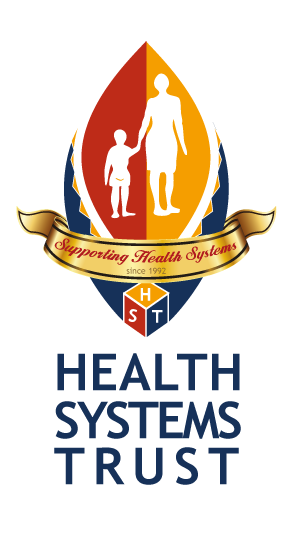 South Africa
South Africa
Health Systems Trust (HST) is an innovative non-profit organization working to strengthen ongoing development of comprehensive health systems in southern Africa. Using a primary health care approach, the organization specializes in conducting health research, providing technical support, and information dissemination. HST’s strategies are designed to promote equity and efficiency in health and healthcare delivery. The Program’s directorate comprises two units – Health Systems Research and Health Systems Strengthening. Through this structure and using a number of strategies, HST has played a key role in supporting the transformation of the health system in South Africa over the past 19 years. HST has acquired a wealth of experience in the design and support of relevant health systems research, providing district managers with technical support and taking a lead in information dissemination within the health sector in South Africa and, increasingly, in southern Africa.
 Health Economics and HIV/AIDS Research Division (HEARD) is a leading applied research centre with a global reputation for its research, education programs, technical services, partnerships and networks, devoted to addressing the broad health challenges of Africa. HEARD’s aim is to shape public health policy and practice in order to reduce health inequalities in Africa and to improve the reach, comprehensiveness and quality of health services delivery throughout the region. Established in 1998, HEARD is a self-funded organization based at the University of KwaZulu-Natal that conducts research on the socio-economic aspects of public health, especially the African HIV and AIDS pandemic.
Health Economics and HIV/AIDS Research Division (HEARD) is a leading applied research centre with a global reputation for its research, education programs, technical services, partnerships and networks, devoted to addressing the broad health challenges of Africa. HEARD’s aim is to shape public health policy and practice in order to reduce health inequalities in Africa and to improve the reach, comprehensiveness and quality of health services delivery throughout the region. Established in 1998, HEARD is a self-funded organization based at the University of KwaZulu-Natal that conducts research on the socio-economic aspects of public health, especially the African HIV and AIDS pandemic.
The Center for Health Policy (CHP) at the University of Witwatersrand is one of the few multi-disciplinary health policy units in South Africa and has over 20 years of research experience. The primary focus of research is to support the development of the South African health system. As an academic research group, CHP actively seeks to draw together theoretical insights and empirical evidence in understanding health system change and in proposing strategies for future health systems development.
Sri Lanka
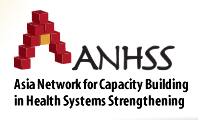 The Asia Network for Capacity Building in Health Systems Strengthening (ANHSS) was launched during the world conference of the International Health Economics Association (iHEA) in Beijing, China, in July 2009. The partnership is a collaboration among nine national institutions and the World Bank Institute. The Network’s objectives are to: empower health policymakers with cutting-edge knowledge on health systems strengthening; help close the gap between technical knowledge and policy designs/implementation; form a platform where health system reform lessons can be disseminated and shared among Asian countries; and build the capacity of national institutions to become centers of excellence in knowledge dissemination and providing policy assistance to their own governments and throughout the region.
The Asia Network for Capacity Building in Health Systems Strengthening (ANHSS) was launched during the world conference of the International Health Economics Association (iHEA) in Beijing, China, in July 2009. The partnership is a collaboration among nine national institutions and the World Bank Institute. The Network’s objectives are to: empower health policymakers with cutting-edge knowledge on health systems strengthening; help close the gap between technical knowledge and policy designs/implementation; form a platform where health system reform lessons can be disseminated and shared among Asian countries; and build the capacity of national institutions to become centers of excellence in knowledge dissemination and providing policy assistance to their own governments and throughout the region.
The Institute for Health Policy (IHP) is an independent, non-profit research institute that works to improve health systems and social policies in Sri Lanka and the wider region. IHP’s goals are to lead to more informed policy and 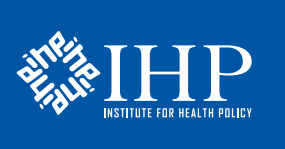 thus better outcomes for all people—by conducting independent research and by providing objective analysis and training—and to be a resource center for Sri Lanka and the region. IHP carries out research across a wide range of areas, ranging from ageing and population to social protection and pensions.
thus better outcomes for all people—by conducting independent research and by providing objective analysis and training—and to be a resource center for Sri Lanka and the region. IHP carries out research across a wide range of areas, ranging from ageing and population to social protection and pensions.
Swaziland
 The Bantwana Initiative helps local communities in sub-Saharan Africa support orphaned and vulnerable children and their caregivers. More than 25 million children have been orphaned and made vulnerable in sub-Saharan Africa by HIV, AIDS, and poverty. The Initiative’s model of holistic services for the entire family helps bring about lasting change in the lives of these children and their extended families, neighbors, and communities struggling to care for them. The Bantwana Initiative builds the abilities, skills, and networks of communities to help highly vulnerable children in high HIV-prevalence countries access the full range of comprehensive support they need to grow into healthy, productive adults.
The Bantwana Initiative helps local communities in sub-Saharan Africa support orphaned and vulnerable children and their caregivers. More than 25 million children have been orphaned and made vulnerable in sub-Saharan Africa by HIV, AIDS, and poverty. The Initiative’s model of holistic services for the entire family helps bring about lasting change in the lives of these children and their extended families, neighbors, and communities struggling to care for them. The Bantwana Initiative builds the abilities, skills, and networks of communities to help highly vulnerable children in high HIV-prevalence countries access the full range of comprehensive support they need to grow into healthy, productive adults.
 Cabrini Ministries Swaziland is a Catholic faith-based and community-based not-for-profit organization working in the Lubombo region of Swaziland. Cabrini Ministries is based at St. Philip’s Mission and operates for the good of the larger community including the chiefdoms of Ngcamphalala, Mamba, and Gamedze with some activities in Shongwe, Mkweli and Nceka. Cabrini’s work is fundamentally about responding to local need, addressing issues of health, nutrition, education, and protection, as well as ensuring mental and spiritual well-being. In performing its work, Cabrini emphasizes three key methodologies: responses are community and family centric, interventions are assessment-based, and service delivery is comprehensive and integrated.
Cabrini Ministries Swaziland is a Catholic faith-based and community-based not-for-profit organization working in the Lubombo region of Swaziland. Cabrini Ministries is based at St. Philip’s Mission and operates for the good of the larger community including the chiefdoms of Ngcamphalala, Mamba, and Gamedze with some activities in Shongwe, Mkweli and Nceka. Cabrini’s work is fundamentally about responding to local need, addressing issues of health, nutrition, education, and protection, as well as ensuring mental and spiritual well-being. In performing its work, Cabrini emphasizes three key methodologies: responses are community and family centric, interventions are assessment-based, and service delivery is comprehensive and integrated.
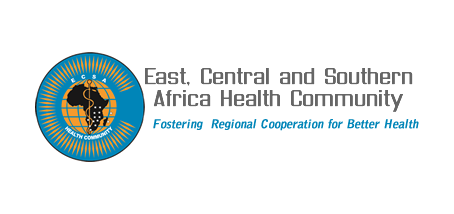 Tanzania
Tanzania
The East, Central and Southern Africa Health Community (ECSA-HC) is a regional inter-governmental health organization that fosters and promotes regional cooperation in health among member states. Member states of the ECSA Health Community include Kenya, Lesotho, Malawi, Mauritius, Seychelles, Swaziland, United Republic of Tanzania, Uganda, Zambia and Zimbabwe. ECSA-HC was established in 1974 to foster and strengthen regional cooperation and capacity to address the health needs of the member states. The ECSA Health Community works with countries and partners to raise the standard of health for the people of the ECSA region by promoting efficiency and effectiveness of health services through cooperation, collaboration, research, capacity building, policy development and advocacy.
Vietnam
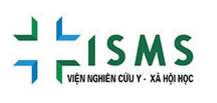 The Institute of Social and Medical Studies (ISMS) is a nongovernmental organization based in Hanoi. ISMS strives to become a leader in the design and implementation of research to provide evidence for the development, planning, and implementation of strategies, policies, and programs in the socio-medical field. Their work covers a broad range of areas that affect the lives and well-being of communities throughout Vietnam, particularly marginalized and vulnerable populations such as ethnic minorities, the poor, women, children, and people living with HIV. Their mission is to improve the health and quality of life of the people of Vietnam, especially the poor and vulnerable groups through the application of scientific advances to improve the health and social development.
The Institute of Social and Medical Studies (ISMS) is a nongovernmental organization based in Hanoi. ISMS strives to become a leader in the design and implementation of research to provide evidence for the development, planning, and implementation of strategies, policies, and programs in the socio-medical field. Their work covers a broad range of areas that affect the lives and well-being of communities throughout Vietnam, particularly marginalized and vulnerable populations such as ethnic minorities, the poor, women, children, and people living with HIV. Their mission is to improve the health and quality of life of the people of Vietnam, especially the poor and vulnerable groups through the application of scientific advances to improve the health and social development.
Zambia
 The Institute for Child Witness Research and Training was established in 1998 as a unique organization that aims to conduct research and training in the specialized field of child witnesses. Members of the Institute have experience in conducting research projects, acting as advisors, monitoring the child witness’s experience in the criminal justice system, and participating in legislative development and reform policies focusing on child witness issues. The Institute operates in partnership with governmental organizations such as the Department of Justice and Constitutional Development, the Sexual Offences and Community Affairs Unit of the National Prosecuting Authority and the Department of Social Development, and non-governmental organizations across Southern Africa and internationally.
The Institute for Child Witness Research and Training was established in 1998 as a unique organization that aims to conduct research and training in the specialized field of child witnesses. Members of the Institute have experience in conducting research projects, acting as advisors, monitoring the child witness’s experience in the criminal justice system, and participating in legislative development and reform policies focusing on child witness issues. The Institute operates in partnership with governmental organizations such as the Department of Justice and Constitutional Development, the Sexual Offences and Community Affairs Unit of the National Prosecuting Authority and the Department of Social Development, and non-governmental organizations across Southern Africa and internationally.




